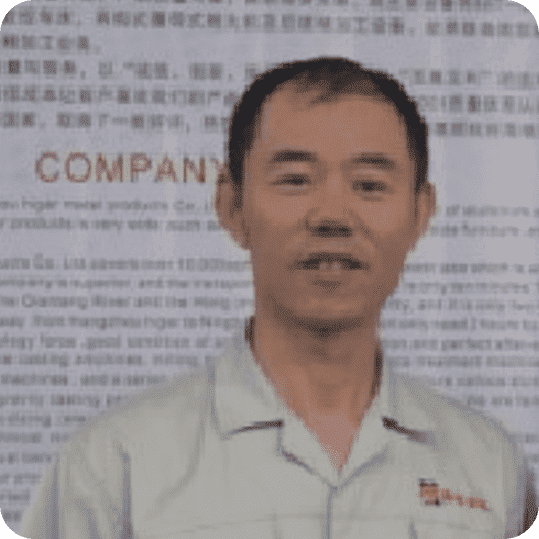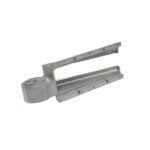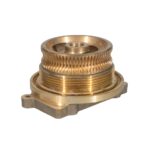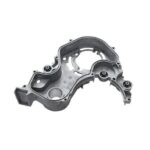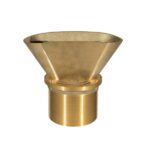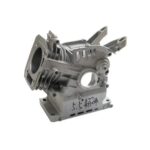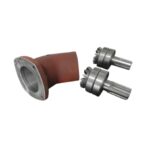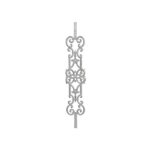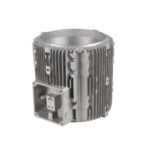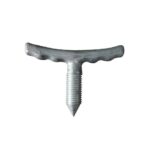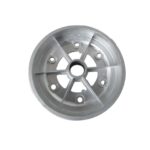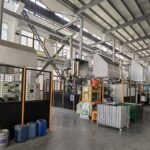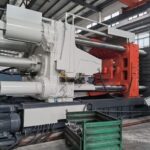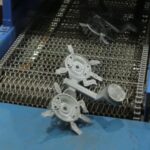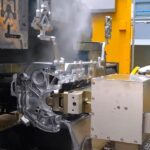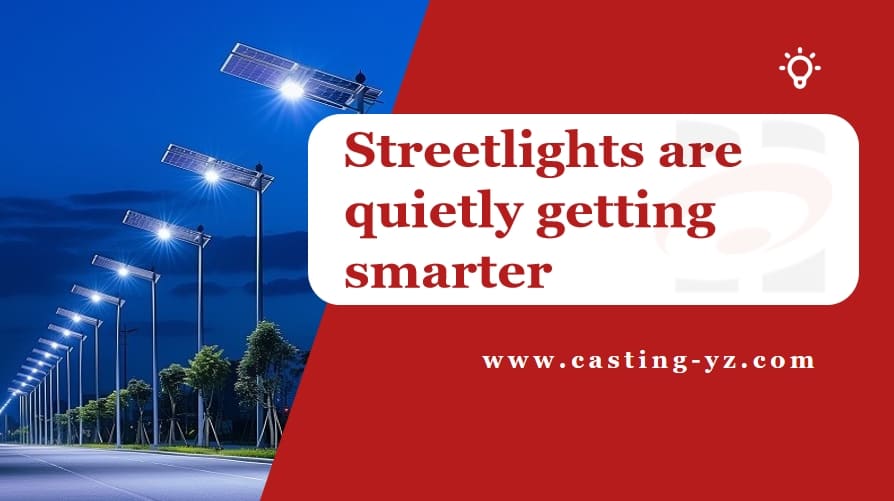
Introduction:
Street lighting has come a long way since the first gas lamps illuminated streets in the 19th century. Over time, the materials used to create street lights have evolved as well.
Early street lights were made of wood and iron, but today’s modern street lights have embraced materials like aluminum alloys, which offer greater durability, lighter weight, and corrosion resistance.
The broad adoption of street lighting has played a pivotal role in urbanization, ensuring safer streets and enhancing public spaces.
But as technology advances, so too does the evolution of street lighting. Enter the age of intelligent street lights, designed to meet the demands of growing smart cities.
Smart Street Light Systems: The Rise of Intelligent Lighting
How Smart Street Lights Differ from Traditional Lights
Traditional street lights were simple: they provided constant illumination and were controlled manually or via timers.
While functional, these systems consumed high energy, required constant maintenance, and lacked the flexibility to adapt to changing needs.
Smart street lights, on the other hand, are designed to adapt and respond to real-time conditions. Equipped with sensors, these systems can adjust brightness based on traffic, weather conditions, and time of day.
For instance, the lights dim in low-traffic areas and brighten when pedestrians or vehicles approach, maximizing energy efficiency.
Key advantages of smart street lights include:
- Energy savings: With dynamic light levels and automatic adjustments, energy consumption is drastically reduced.
- Safety: Enhanced visibility at critical times (e.g., dimming in low-traffic periods, brightening in emergencies).
- Longevity: The use of efficient LEDs and sensors reduces the frequency of bulb replacements and repairs.
Core Components of a Smart Street Light System
- Sensor Technology: These street lights use motion sensors, ambient light sensors, and sometimes even weather sensors. They can detect traffic patterns, changes in light, and environmental conditions, adjusting light output accordingly.
- LED Technology: Modern LED lights consume less energy, last longer, and produce a brighter, more focused light, all of which contribute to reducing maintenance costs.
- 5G Connectivity and Big Data: Smart lights connect to networks, enabling real-time monitoring and adjustments, and allow for centralized control and diagnostics.
Role of Aluminum Die-Casting in Smart Street Lighting
Aluminum die-casting plays a crucial role in enabling these technological advancements.
By using aluminum alloys, manufacturers can produce light fixtures that are not only robust and durable but also optimized for housing sensors, LEDs, and wireless communication devices.
Aluminum’s excellent thermal conductivity helps dissipate the heat generated by high-powered LEDs, preventing overheating and extending the lifespan of the light.
Additionally, aluminum’s corrosion resistance ensures that these fixtures can withstand environmental factors such as rain, humidity, and urban pollution.
Solar-Powered Street Lights: Harnessing the Power of the Sun
With increasing concern about energy consumption and sustainability, solar-powered street lights have become a popular alternative. These systems utilize solar panels to collect energy during the day and store it in batteries for use at night.
Why Solar-Powered Street Lights are Gaining Popularity
- Energy independence: They don’t rely on grid electricity, making them an eco-friendly choice for areas without reliable access to power.
- Cost-effective: While the initial cost may be higher due to the installation of solar panels and batteries, the long-term savings on energy bills and maintenance costs make them a cost-effective solution.
- Eco-friendly: Solar lights are carbon-neutral, reducing the environmental impact of street lighting.
How Aluminum Enhances Solar Street Lights
Aluminum alloys are ideal for solar-powered street lights due to their lightweight and durable nature. The materials used in these lights must withstand various weather conditions, from scorching heat to freezing cold.
Aluminum provides the necessary protection for solar panels and batteries, ensuring that these street lights remain functional in harsh conditions.
- Lightweight and Durable: Aluminum reduces the overall weight of the fixtures, making them easier to install while ensuring they are durable enough to last in outdoor environments.
- Weather Resistance: Aluminum’s natural resistance to corrosion ensures that solar street lights can survive exposure to the elements, from UV radiation to rain and snow.
- Aesthetic Flexibility: Aluminum is easily molded into different shapes and designs, allowing manufacturers to create sleek, modern-looking solar street lights that blend well into urban and rural landscapes.
Challenges and Considerations in Solar Street Light Design
While solar street lights offer significant benefits, they are not without challenges:
- Higher Initial Costs: Solar-powered systems require an upfront investment in solar panels, batteries, and controllers, which can be more expensive than traditional street lights.
- Geographical Considerations: In regions with limited sunlight or frequent cloudy weather, solar-powered street lights may need additional energy storage capacity to function efficiently.
- Maintenance: Solar panels and batteries require periodic maintenance, which may add to the long-term operational costs.
Cost and Energy Efficiency Balance
While solar-powered lights have higher upfront costs, they offer substantial savings in the long run. Energy bills are eliminated, and maintenance costs are reduced due to the efficiency and longevity of LED lights combined with the self-sustaining nature of the solar panels.
A Bright Future for Smart and Solar Street Lighting
As cities continue to grow and technological advancements accelerate, the demand for smart and solar-powered street lighting is expected to increase.
These systems, powered by cutting-edge technologies like smart sensors, LEDs, and solar panels, are creating a more sustainable and energy-efficient future.
Aluminum die-casting will continue to play a crucial role in this evolution, offering durable, lightweight, and corrosion-resistant components that allow manufacturers to meet the diverse needs of modern street lighting.
From urban streets to rural roads, aluminum’s versatility and sustainability make it the perfect material for the future of street lighting.
Searching for High-Quality for Cast Aluminum Parts?
You’ve come to the right place! Yongzhu Casting is a certified die casting manufacturer with over 20 years of expertise in the industry.
We have successfully completed numerous die casting projects for Aluminum casting parts, particularly in your industry.

Zhejiang Yongzhu Casting Technology Co., Ltd.
Location: Zhejiang, Shaoxing
Company type: Manufacturing
Year Founded: 2004
Main Products: Aluminium die casting, Mold Making, Die Casting, Sand Casting, Gravity Casting
Leading Chinese producer Yongzhu Casting is formerly known as Hangzhou Higer Metal Products Co., Ltd., was established in 2004.
With 20 years of experience in the industry, we are a specialized manufacturer in Aluminum casting and Machining.
Our products are widely used in various applications such as Automotive, Energy, Lighting, Medical, Home Furnishings, Machinery & Equipment etc. Below are our advantages:
1. Design Review & DFM Support
Our professionals will evaluate your designs and provide suggestions for cost savings. Additionally, we offer Design for Manufacturing (DFM) assistance and conduct mold flow analyses to facilitate efficient production.
2. State-of-the-Art Manufacturing Equipment
Our facility is equipped with advanced hot-chamber and cold-chamber die casting machinery for aluminum and zinc production.
We also utilize high-precision CNC machines in a temperature-controlled workshop, featuring 3-Axis, 4-Axis and 5-Axis setups to manage any project you have.
3. Rigorous Quality Control Measures
Our dedicated quality control team ensures that all parts meet the highest standards of quality and consistency. We employ high-accuracy measurement instruments, including CMM, spectrometers, and X-ray detectors.
4. Comprehensive Surface Treatment Options
We provide a variety of surface finishing techniques for your precision die casting components. Our in-house services include cleaning, polishing, anodizing, shot blasting, and painting.
5. Flexible Project Acceptance
While larger manufacturers often shy away from low-volume projects, and smaller ones may struggle with quality, Yongzhu Casting stands apart. We prioritize customer satisfaction and willingly accept high-mix, low-volume projects like yours.


